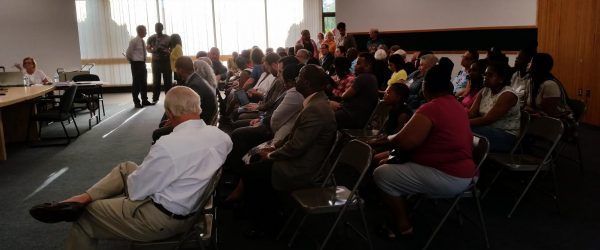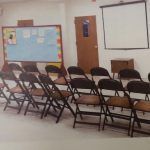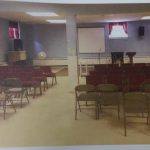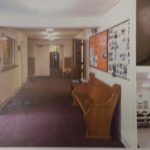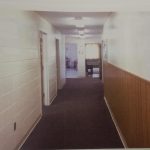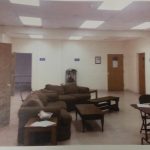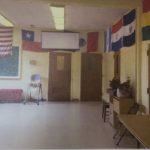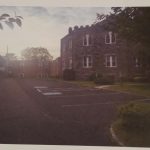College Achieve Charter School Approval Starts
Use variance needed for school to operate in the house of worship
A standing room only crowd packed the Zoning Board of Adjustment meeting room Tuesday as College Achieve Greater Asbury Park Charter School officials began their request for use variance, needed to house the newly launched charter school’s grades K to 3 students at First Baptist Church, located at 508 Third Avenue.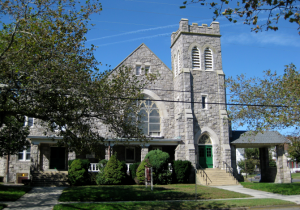
Among those in the room were opposing zoning attorneys Charles Liebling, representing neighboring resident Sharon Krengel, and Fredrick Niemann, representing Academy Charter High School and Hope Academy Charter School.
Immediately Niemann asked why he could not find much more than an application and a floor plan for review.
“Normally I’m looking for a number things like checklists, site plan, consent of owner,” he said.
Board Secretary Barbara Van Wagner said the application was deemed complete by Planning and Redevelopment Director Michele Alonso.
“I did not see a zoning permit or zoning approval in the file,” Niemann said.
“That’s the entire reason we are here,” project attorney Andrew Karas said. “I don’t have to get a zoning denial because it is not a permitted use under the code. Since it is not a permitted use I made an application for a use D variance as indicated on the application.”
The D variance allows for uses not outline by zoning guidelines, in this case a school use within a house of worship. Karas said the application packet include a letter from the architect and a document outlining the classrooms and the capacity of the school.
“What is significant is that the property is in a PO zone,” Karas said. This is otherwise known as a professional office zone, which allows for professional uses like a real estate or law offices. It also allows for 2 to 4 family residential units.
Karas opened by making the point that schools are an inherently beneficial use via state statute.
“Ordinarily when a board considers a use variance, the applicant has to satisfy the positive and the negative criteria. However when are talking about an inherently beneficial use, we don’t have to prove positive criteria. It is assumed and presumed that the positive criteria has been satisfied because of the nature of the use.”
The inherently beneficial use point is important because within the state statutes Karas said, “there is no need to look at whether or not there is a need for additional school.”
And while both Liebling and Niemann disagreed, board attorney Jack Serpico asked that all three attorneys state their case via letter prior to the July 11 meeting, when the case continues.
Project architect Brian Taylor outline the classroom layout and gave testimony as to how the maximum 539 occupancy rate was calculated. He also defined where points of entrance were located.
Taylor said the building consists of the church, a sanctuary, “and a good part of the building looks as if it were a school at some point. There are classrooms, associated office and accessory spaces.”
The project plans identify seven classrooms with areas such as the library and an assembly area that could be used as classroom. Taylor said there 10′ x 10′ breakout rooms within two classrooms, 25 onsite parking stalls, and no proposed renovations. He also said the plans [as far as he knows] are compliant with state codes.
“Public school regulations do not apply to charter schools,” Taylor said.
And while the opposing attorneys, Board Planner Michael Sullivan of Clarke Caton Hintz, board members and the public had opportunities to ask questions, little came to light in terms of functionality. Often detailed questions [which took up the close to 3 hour long meeting] were deferred until testimony from other project officials, which will include Piscal, Principal Dan Simon, a traffic engineer, and project planner.
First Baptist’s Senior Pastor John Helm was able to 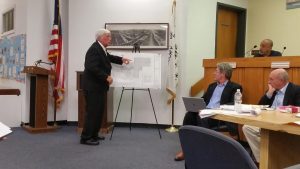 shed some light to concerns raised over whether a portion of the building had ever been used as a school. He said he served as a youth pastor back in the 1970s and gave testimony that at that the Central Jersey Christian High School was in service from 1978 to 1995 and that an adult educational program was administered during the evenings until 1990. At its height, the high school served 250 to 300 students, and the adult program served 100 to 220 students, he said.
shed some light to concerns raised over whether a portion of the building had ever been used as a school. He said he served as a youth pastor back in the 1970s and gave testimony that at that the Central Jersey Christian High School was in service from 1978 to 1995 and that an adult educational program was administered during the evenings until 1990. At its height, the high school served 250 to 300 students, and the adult program served 100 to 220 students, he said.
Helm also identified the points of egress, confirmed are handicapped bathrooms, and that the building was constructed in 1908, with the school added in 1967. He said additional parking stalls can be available at a secondary lot.
Piscal said currently there are 110 grade one students, 225 grade two students, and close to 100 third grade students on the rolls. Based on state guidelines that outline student occupancy per square footage, the school can accommodate 539 students. He said 12 faculty members will be on staff during year one, with five others to be added in year two.
The board asked for the applicant to return with a definition of a classroom, the minimum sized of a classroom, the charter regulations, the definition of net and gross floor area, egress requirements, parking requirements, trash and recycling, pluming fixture schedule based on male and female occupancy, including requirements for secondary facilities for adults, and the building’s original site plan. Karas also agreed to a provide a redacted lease agreement.
A total of 961 students is projected to be enrolled by year four at the K through 9 school, but in the immediate 66 kids are enrolled in the first grade class. The kindergarten enrollment has been stalled one year due to the Early childhood Education approval process.
The submitted plans outline 448 students 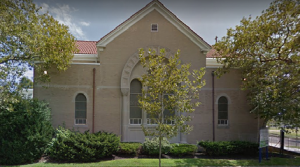 will attend the k-3 facility with a staff of 17. The College Achieve’s second location at the St. George Greek Orthodox Church at 700 Grand Ave will house the upper grades.
will attend the k-3 facility with a staff of 17. The College Achieve’s second location at the St. George Greek Orthodox Church at 700 Grand Ave will house the upper grades.
In the end, many of the parents in the audience voiced concerns about the pace of the approval process, questioning if the Zoning Board hearings will be complete in time for the late August academic school year start date.
College Achieve is a tuition-free public school network that aims to produce students who will go on to graduate from top colleges and universities across the nation, officials have said. Their curriculum is based on the Toulmin College Writing Model and will emphasize science, technology, engineering, arts, and math [STEAM] education.
For more about the College Achieve, visit www.collegeachieve.org.
————————————————————-
Follow the Asbury Park Sun on Facebook, Twitter and Instagram.
The Asbury Park Sun is affiliated with the triCityNews newspaper.

